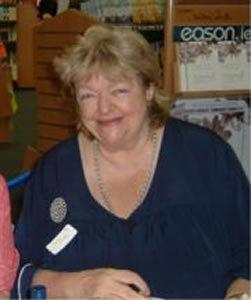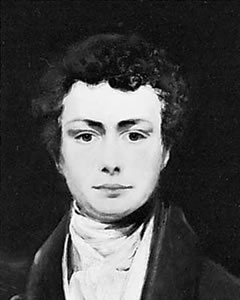De Belgische schrijver Leo Pleysier werd geboren in Rijkevorsel op 28 mei 1945. Zie ook mijn blog van 28 mei 2007.
Uit: Geuzegedachten in de Mort Subite
“Hergé, De Nationale Bond van Oudstrijders, de serres van Laken, Leonidas, Jef Lambrecht, James Ensor, Jaco Van Dormael, VDB, De Munt en de Beursschouwburg, dat ligt zo voor de hand allemaal, hoe dat klontert, de namen, de gevels en de winkeletalages op de Avenue Louise en de Zavel, Hoegaerden en Piedboeuf, de Tervurenlaan, De Brand Withocklaan, de gevels van de burgerswoningen, de Brusselaars achter die gevels, ik heb daar geen uitstaans mee, en vice versa, Herman Teirlinck zeker en vast, de vervallen legerkazerne op de Place Dailly, straatkinderen hebben er de ruiten ingegooid, zag ik zonet; het verzet en de weerstand, Herman Liebaers, coq au vin, cul de sac, noem maar op, zo hoofdstedelijk getint allemaal, hoe komt dat toch, dat weet ik niet, omdat België mij synthetisch pintje, maar ga eens voort, zeg eens wat, Johan Daisne, de man die zijn stenen wolken kort liet knippen, dat komt ervan, al die sinecures, Rolande met de bles, André Delvaux, en Ivo Michiels ook ja, een vrouw tussen chien et loup, geen twijfel aan, en Maurice Gilliams, voor zijn lokaties en ook voor zijn Antwerps en voor zijn Frans, de twee samen, Franswerps, dat je in elke syllabe hoort doorklinken en ik weet niet wat er aan de hand is, maar dat laatste boek van hem, Gregoria, dat tegenvalt, en dat zo ‘Belgisch’ leest, vind ik, en dat komt niet alleen door die dure pralinedoosachtige wikkel die om het boek zit, Côte d’Or en ik mis de klank van woorden als Martougin, Perette en Victoria, in de plaats zijn er tegenwoordig de scenario’s van Chantal Akerman, de boeken van Erik de Kuyper, straten en pleinen in Antwerpen en Luik, aan de Place Clovis in Doornik zit tegenwoordig mijn dochter op kot; stedelingen spiegelen zich zo graag, ziet ze maar bezig!
het Leopoldkwartier, een tocht door Brussel uitgestippeld door Daniël Robberechts, zo lang het nog overeind staat, en zeker niet te vergeten de Gangreen-cyclus van Geeraerts, de Kongo, dat boek van Lieve Joris natuurlijk en Geert Van Istendael, liefde voor België, maar haat ook, al wint het eerste het op het laatste, bemind labyrint, daar is geen enkele twijfel over; Magritte en Delvaux-de-schilder en vergeet de negentiende eeuw niet, dit land lijdt aan aandoeningen van de luchtwegen;
Baron Horta en Charles Vandenhove, Marcel Broodthaers, Narcisse Tordoir en Jan Vercruysse op muziek gezet door Jan Hoet, de Wereldtentoonstelling op Beerschot en Expo 58, dat brood was niet ècht lekker, het softijs dat ze verkochten wèl, er liepen Amerikaanse matrozen rond die nog maar pas in hun atoomduikboot onder de ijskap van de Noordpool door waren gevaren,
get off!”

Leo Pleysier (Rijkevorsel, 28 mei 1945)
De Duitse schrijver Frank Schätzing werd geboren in Keulen op 28 mei 1957. Zie ook mijn blog van 28 mei 2007.
Uit: Lautlos
“So jedenfalls stellt es sich in der Erinnerung dar.
Tatsächlich waren in der letzten Dekade des zweiten Jahrtausends weit über hundert Nationen weltweit in kriegerische Aktivitäten verwickelt, starben Millionen Menschen im Zuge bewaffneter Auseinandersetzungen und an den Folgen von Folter und Vertreibung. Die Schauplätze reichten von Ruanda über Tibet und die Kurdengebiete bis nach Tschetschenien und in den Gaza-Streifen. In weiten Teilen Afrikas und Südamerikas forderten Bürgerkriege große Opfer. Dennoch haben nicht diese Konflikte die Frage über die Führbarkeit von Kriegen neu aufgeworfen, sondern das Gerangel eines Despoten um Ölquellen und das eines anderen um ein Stück Land, auf dem vor über sechshundert Jahren ein gewisser Fürst Lazar den Osmanen unterlag.
Wirft man einen Blick auf die rasante Entwicklung der westlichen Medienkultur, wird klar, warum wir die Dinge so sehen. Fernsehen und Internet verschaffen uns Zugriff auf nahezu jede gewünschte Information. Wir können uns nach Belieben mit Daten versorgen und müssen dafür nicht einmal Wartezeiten in Kauf nehmen. Kein Teil der Welt, kein Fachgebiet, keine Intimität bleibt uns verschlossen. Im Gegenzug haben wir unser Urteilsvermögen eingebüßt. Wir bemessen die Wichtigkeit w
eltweiter Vorgänge daran, wie lange im Fernsehen darüber berichtet wird. Zwei Minuten Tschetschenien, drei Minuten Lokales, eine Minute Kultur, das Wetter. Das Problem ist, dass wir uns angewöhnt haben, dieser medienseits vorgenommenen Wertung blind zu vertrauen. Als Folge unterliegen wir einem Irrtum. Wir verwechseln die Frage, ob eine Sache für uns interessant ist, mit der Frage, ob sie grundsätzlich interessant ist, und lassen diese Frage von den Medien beantworten. „

Frank Schätzing (Keulen, 28 mei 1957)
De Ierse schrijfster en columniste Maeve Binchy werd geboren op 28 mei 1940 in Dalkey. Zie ook mijn blog van 28 mei 2007.
Uit: Whitethorn woods
Father Brian Flynn, the curate in St Augustine’s, Rossmore, hated the Feast Day of St Ann with a passion that was unusual for a Catholic priest. But then as far as he knew he was the only priest in the world who had a thriving St Ann’s Well in his parish, a holy shrine of dubious origin. A place where parishioners gathered to ask the mother of the Virgin Mary to intercede for them in a variety of issues, mainly matters intimate and personal. Areas where a clodhopping priest wouldn’t be able to tread. Like finding them a fiancé, or a husband, and then blessing that union with a child.
Rome was as usual unhelpfully silent about the well.
Rome was probably hedging its bets, Father Flynn thought grimly, over there they must be pleased that there was any pious practice left in an increasingly secular Ireland and not wishing to discourage it. Yet had not Rome been swift to say that pagan rituals and superstitions had no place in the Body of Faith? It was a puzzlement as Jimmy, that nice young doctor from Doon village, a few miles out, used to say. He said it was exactly the same in medicine: you never got a ruling when you wanted one, only when you didn’t need one at all.
There used to be a ceremony on 26 July every year where people came from far and near to pray and to dress the well with garlands and flowers. Father Flynn was invariably asked to say a few words, and every year he agonised over it. He could not say to these people that it was very near to idolatry to have hundreds of people battling their way towards a chipped statue in the back of a cave beside an old well in the middle of the Whitethorn Woods.
From what he had read and studied, St Ann and her husband St Joachim were shadowy figures, quite possibly confused in stories with Hannah in the Old Testament who was thought to be forever childless but eventually bore Samuel. Whatever else St Ann may have done in her lifetime, two thousand years ago, she certainly had not visited Rossmore in Ireland, found a place in the woods and established a holy well that had never run dry.

Maeve Binchy (Dalkey, 28 mei 1940)
De Ierse dichter en songwriter Thomas Moore werd geboren op 28 mei 1779 in Dublin. Zie ook mijn blog van 28 mei 2007 en ook mijn blog van 28 mei 2006.
How Dear to Me the Hour
How dear to me the hour when daylight dies,
And sunbeams melt along the silent sea,
For then sweet dreams of other days arise,
And memory breathes her vesper sigh to thee.
And, as I watch the line of light, that plays
Along the smooth wave toward the burning west,
I long to tread that golden path of rays,
And think ’twould lead to some bright isle of rest.
Ne’er Ask the Hour
Ne’er ask the hour — what is it to us
How Time deals out his treasures?
The golden moments lent us thus
Are not his coin, but Pleasure’s.
If counting them o’er could add to their blisses,
I’d number each glorious second:
But moments of joy are, like Lesbia’s kisses,
Too quick and sweet to be reckon’d.
Then fill the cup — what is it to us
How time his circle measures?
The fairy hours we call up thus
Obey no wand but Pleasure’s.
Young Joy ne’er thought of counting hours,
Till Care, one summer’s morning,
Set up, among his smiling flowers,
A dial, by way of warning.
But Joy loved better to gaze on the sun,
As long as its light was glowing,
Than to watch with old Care how the shadow stole on,
And how fast that light was going.
So fill the cup — what is it to us
How time his circle measures?
The fairy hours we call up thus
Obey no wand but Pleasure’s.

Thomas Moore (28 mei 1779 – 25 februari 1852)
Zie voor onderstaande schrijver ook mijn blog van 28 mei 2007.
De Britse schrijver Ian Fleming werd geboren op 28 mei 1908 in Londen.
